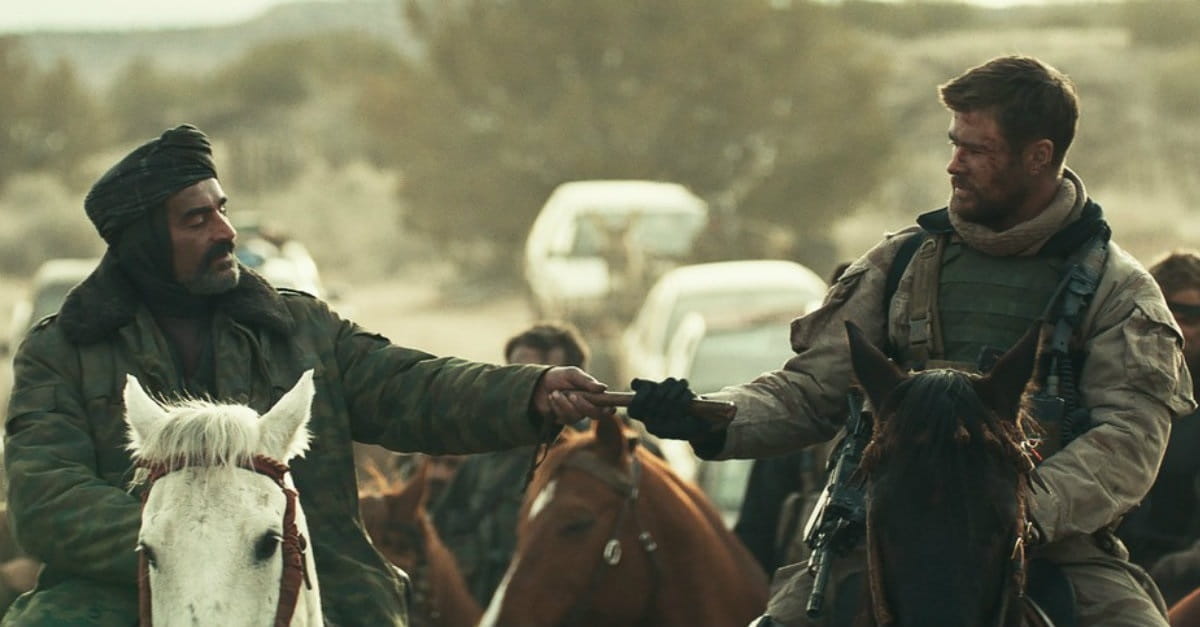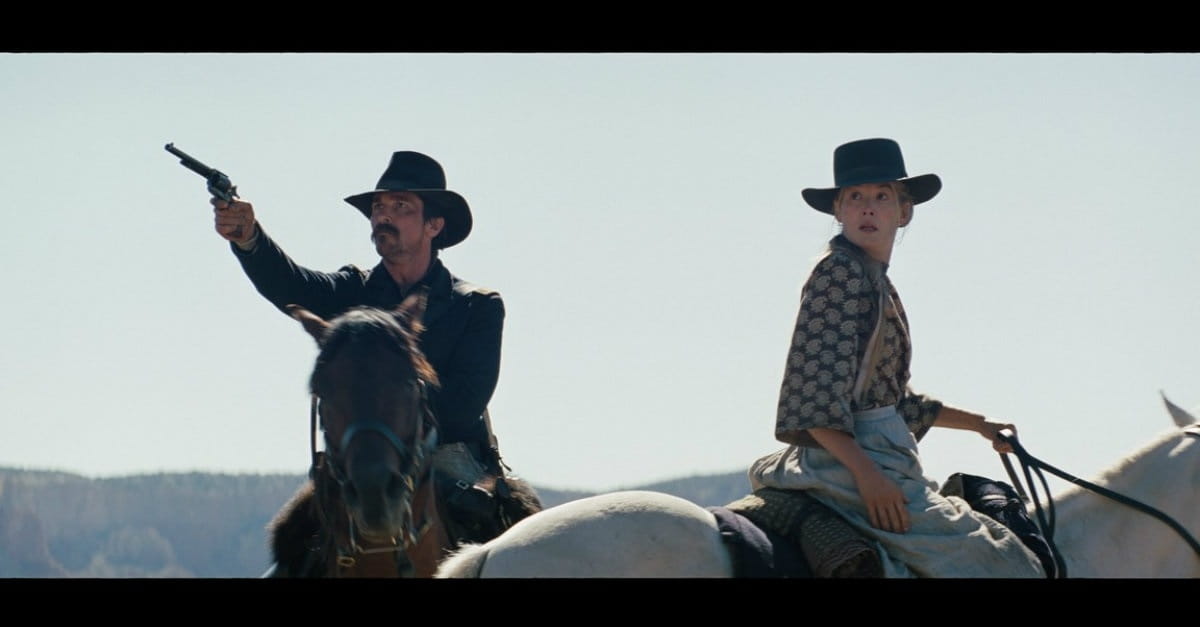Road to Perdition
- compiled by Jeffrey Overstreet Copyright Christianity Today International
- Updated Nov 24, 2009

The high-profile revenge picture of the year will be
Tom Hanks and Paul Newman face off in a new gangster flick this month,
Why are we as a society so interested in these corrupt, shady characters? Do we relate to them on some level? Or are baser appetites drawing us to stories of sin and corruption? Send me a note with your thoughts, or tell me about a particular gangster film that has impressed you or meant something to you. Or tell me why you avoid them. We'll take a closer look next week.
I was quite impressed by Mendes, who makes this a subtler and more haunting work than his smug, overrated
Michael Sullivan (Hanks) is a thug in a long black coat, as well as a loving husband and father. He owes his life to Mr. Rooney (Newman), a godfather/tyrant who rules his small community with a smile and an iron fist. But when Rooney's own son Connor (Daniel Craig), a reckless and power-hungry crook, deals Sullivan a grievous personal blow, Sullivan's desire for revenge makes him an exile from Rooney's body of villains. Thus, this fallen and violent man struggles with a desire to be free from this system of cruel Mafia law, his desire for revenge, and his desire to protect his innocent son from the stain of violence.
It's a simple story that could have dealt more effectively with some fundamental spiritual questions. Is the God to whom he prays a God of law and vengeance, like Rooney, or is he a God of grace? Redemption is portrayed as something we must earn with our own goodness rather than accept as God's free gift. David Self's script instead focuses on earthbound father/son issues. This is unfortunate, especially since the book on which the film is based spent more time on spiritual issues. Nevertheless,
Oscar-winning director Sam Mendes (
As is often the case, this mobster movie introduces men caught up in the violent cycle of "an eye for an eye." Michael Sullivan (Tom Hanks) is a murderous gangster in the employ of Mr. Rooney (Paul Newman) who rules the town with crime and a grandfatherly smile. Rooney treats Sullivan like a beloved son, which drives his own boy Connor Rooney (Daniel Craig) to dangerous jealousy. Connor is a reckless monster with an itchy trigger finger, and eventually his behavior deals Sullivan a devastating blow. Sullivan vows revenge, hoping Rooney and the mob will see his cause as just. They do not. Mr. Rooney reluctantly hires a perverse assassin (Jude Law) to hunt down Sullivan, who has taken his young son Michael Jr. and gone into hiding. So the chase is on as Sullivan plots his revenge.
Regardless of its muddy ethical dilemmas, many critics in the religious and mainstream press agree that
Holly McClure (Crosswalk) calls it "a visually interesting and richly layered story that will have you thinking about it and wanting to discuss it with your friends. Fathers, it will challenge you to take a close look at your relationship with your children … and examine how you think they see you versus how they really do."
Similarly, Lisa A. Rice and Tom Snyder (
The U.S. Conference of Catholic Bishops' critic observes, "As Mendes examines moral decisions with generational repercussions, the actors' nuanced performances stand out in a sea of popcorn summer movies. The divisive morality tale is layered with regrets, bad decisions, and a good dose of gruesome violence. But also weaved in with the theme of betrayal is redemption, filial love and family responsibility." Regarding the violence, he adds: "The camera is unflinching in capturing its ugly brutality, never glamorizing the crimes. And yet there is a certain strange beauty in seeing Hanks walk determinedly though puddles with a machine gun in his hands."
Mary Draughon (Preview) finds all of these gunshots off-putting: "The intense violence and foul language make it a poor choice for discerning moviegoers."
Phil Boatwright (Movie Reporter) asks, "Is this visual assault desensitizing us to the loss of life?" Yet he concludes, "As filmmaking goes, it's as good as it gets."
The same dichotomy is emphasized by Steven Isaac (Focus on the Family): "
In a chat with critics at the Chiaroscuro Discussion Board, Darren Hughes criticizes the way Mendes aesthetically manipulates the viewer. "
After praising its "visual richness" and cast, Steven D. Greydanus (Decent Films) writes, "the central characters are inaccessible to me; the story left me emotionally detached throughout. In the end, I found the whole thing self-conscious and artificial—a collection of momentous themes and evocative images that somehow never transcends technique and craft to become a real film."
Greydanus is also displeased by the use of religious symbols in place of real spiritual exploration. "The movie's pervasive Catholic imagery was ripped from more integral themes of confession, forgiveness, and redemption that in the book are tied to a faith-affirming final revelation that provides a moral context for the whole story, but which is omitted from the film."
Michael Elliott (Movie Parables) agrees: "It … includes a fair amount of religious referencing although it never delves into the spiritual truths which are supposed to dwell behind the symbols and rituals," Still, he is impressed: "Mendes shows a level of artistry and craftsmanship which is truly enviable."
As I've thought over the film, I've become troubled by how Mendes portrays Sullivan's sufferings, but not those of other gangsters that Sullivan guns down. I must assume some of them were loving fathers and husbands as well. Such details would show us more clearly what kind of man Sullivan really is, what kind of damage revenge can do. In spite of some token words that say otherwise, he appears to be an admirable figure, sorely wronged, with every right to lash out at whomever gets in his way. Thus,
Mainstream critics compared the film to other famous gangster films—especially
Jonathan Rosenbaum (Chicago Reader) says the film continues a dangerous, dishonorable trend in American revenge-plots. "[
Rosenbaum goes on to point out the danger of such glorified revenge epics. "The sanctioning of such ideas has real consequences, reinforcing, for instance, the idea that the recent invasion of Afghanistan was an appropriate response to terrorist attacks on New York and Washington, even though the attackers were dead, most of their sponsors weren't caught, and many innocent Afghans' lives (the current estimate is more than 3,000) have been lost."
Roger Ebert (
Both Lisa Schwarzbaum (Entertainment Weekly) and Stephanie Zacharek (Salon.com) complain of heavy-handed "deliberateness." Zacharek argues, "When a gangster takes a drag on a cigarette, the plumes of smoke that wreath his head look as if they'd been called in from central casting. ('We want something round, not too wispy, with a little curlicue at the end.') Its deliberateness becomes oppressive."
Katrina Onstad (National Post) muses, "At one point, Michael tells his father that he likes Bible stories, and
Whether this Scripture-esque story will make Mendes the first director to win Best Picture on his first two movies remains to be seen. But he has certainly given audiences some serious questions to consider, something few other films this year have done.
from Film Forum, 07/25/02Elsewhere, Mike Parnell (Ethics Daily) calls director Sam Mendes's

.jpg)












